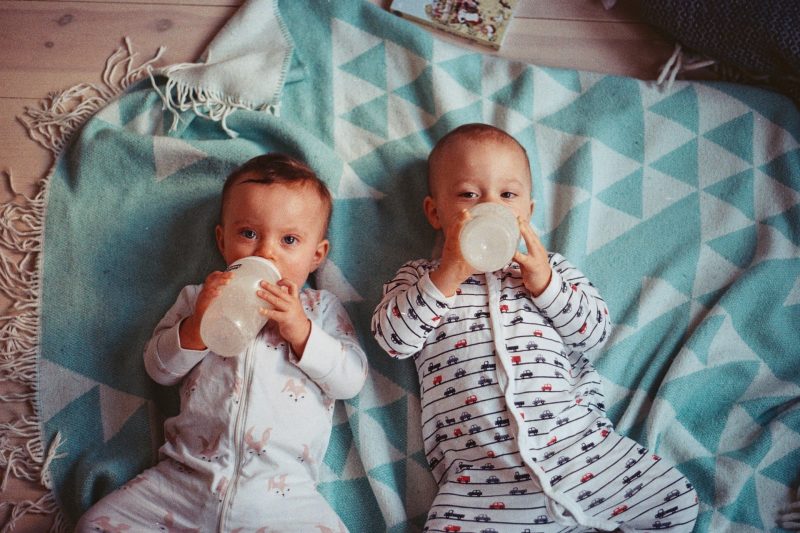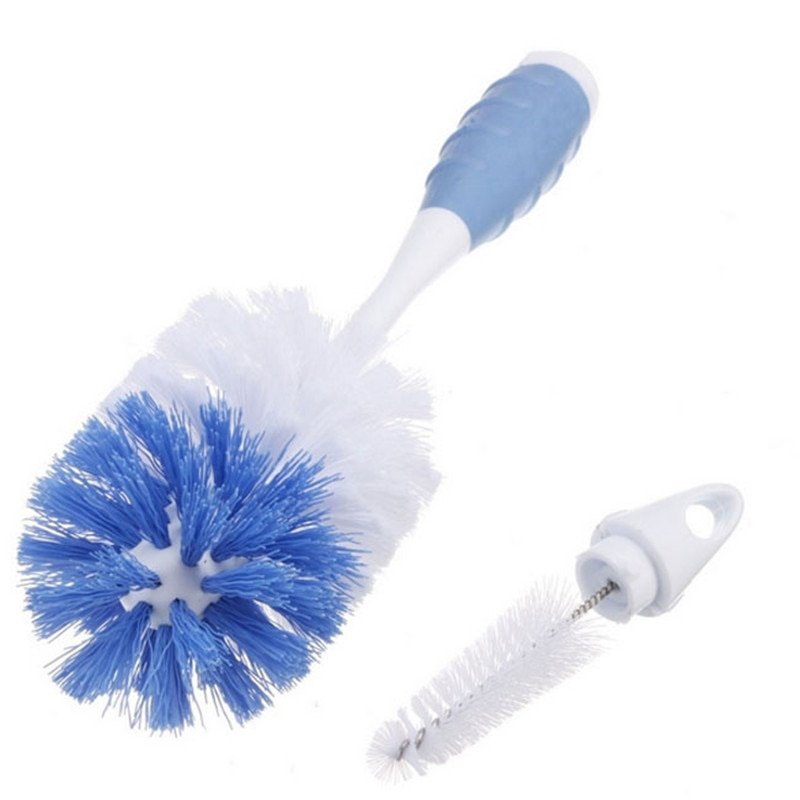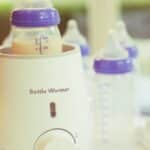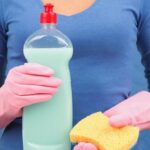In short, yes Avent bottles are dishwasher safe. You can easily put them in the dishwasher without causing any type of harm to your baby, but there is a lot more to it than simply throwing the bottles in the dishwasher. You also need to understand why it is important to make sure that bottles are properly cleaned, sterilize bottles, and check for signs of wear.
Why It’s Important
It’s important to consider thoroughly cleaning bottles and properly sterilizing them before using them. First, it is more hygienic, and every eating utensil should be cleaned properly before use. Second, babies do not have strong immune systems. This makes them more susceptible to getting sick, which includes bacterial infections if bottles are not properly cleaned.
Sterilizing Bottles
Before every bottle’s first use, it should be properly sterilized. Bottles should also be sterilized once a month, or if they are left to sit out. Not rinsing out bottles immediately breeds bacteria, and can make your baby sick. If this happens, it’s important to sterilize bottles before using them again.
Sterilizing In The Dishwasher
Avent bottles can be sterilized in the dishwasher. Simply place them on the top rack, and wash them using the hottest setting. Then, use the hottest setting to dry them after they are washed. This is usually all it takes to use a dishwasher to sterilize bottles.
Sterilizing Bottles Using Hot Water
If you don’t feel comfortable using the dishwasher to sterilize bottles, you can also use hot water. Fill a large pot with hot water. Then, submerge the bottles and nipples in the water. After that, turn the stove on high heat. After that water begins to boil, boil the bottles and nipples for five minutes. This will kill lingering bacteria on them.
Using A Sterilizer
Electric sterilizers, like the Philips AVENT 3-in-1 Electric Steam Sterilizer, make sterilizing bottles extremely easy. You simply disassemble the bottle, place the parts in the sterilizer, and push a button. Then, the product uses steam to sterilize the bottles. They also make sterilizers that are designed to work with a microwave. These also use steam to sterilize the bottles.
[amalinkspro type=”showcase” asin=”B0057ECYS0″ apilink=”https://www.amazon.com/dp/B0057ECYS0?tag=mominformedcom-20&linkCode=osi&th=1&psc=1″ new-window=”true” addtocart=”false” nofollow=”true” sc-id=”4″ imgs=”LargeImage” link-imgs=”false” specs=”Kills 99.9 percentage of harmful germs and bacteria without using chemicals~~~Sterilizes in just 6 minutes with automatic shut off for speed and safety~~~Keeps contents sterile for up to 24 hours if the lid is unopened; It is philips avent range compatible~~~3 in 1 adjustable modular design allows you to fit a variety of bottles, pumps and accessories~~~” btn-color=”#ff9900″ btn-text=”Buy on Amazon” alignment=”aligncenter” hide-prime=”0″ hide-image=”0″ hide-reviews=”0″ hide-price=”0″ hide-button=”0″ width=”750″]Philips AVENT 3-in-1 Electric Steam Sterilizer[/amalinkspro]
Are Avent Bottles Dishwasher Safe?
Yes, they are! Avent bottles are comprised of a few smaller parts. You’ll have a nipple, ring, bottle, and the little plastic part that is used to help keep the air in the bottle. Different bottles may have different parts. Every part of Avent bottles is dishwasher safe.
Are All Baby Bottles Dishwasher Safe?
View in gallery
No, they are not. Some companies use products that can fall apart in the dishwasher. The extreme temperatures can make the plastic melt, resulting in a bottle having a warped shape or nipples turning into a goopy mess. Other times, it might seem fine to put them in the dishwasher as nothing happens the first time, even though the product is marked not safe for the dishwasher. However, they can wear out easier as a result. Nipples might become worn which will result in formula coming out too fast and choking your baby, for example. If the packaging says not to put the item in the dishwasher, it’s best to hand wash it.
Washing Avent Bottles
In between sterilizing bottles, it’s important to make sure that they are cleaned properly. This can be done in the dishwasher or by hand, but most prefer the dishwasher if they have one.
To clean baby bottles, disassemble them. Take apart all the small parts of the bottle. Then, carefully rinse off each piece of the bottle. This will guarantee that there are not any clumps of formula stuck in the bottle. Rinsing baby bottles out after every use is another way to make sure that there is no formula left inside them that can clump up and get stuck in the nipple.
Next, place the smaller parts in a dishwasher safe basket. This will guarantee that they do not fall to the bottom of the dishwasher. If they do, they will not be cleaned properly and might get damaged from the bottom of the dishwasher. Put the bottles on the top rack of the dishwasher just like you would a cup. If there are tongs sticking up on the top shelf, place the bottles on them so that they do not fall over.
If you would like to sterilize the bottles, place them on the hottest setting to dry them. If not, remove them from the dishwasher and place them on a towel to dry.
Important Tips To Remember
Even though it’s safe to put Avent bottles in the dishwasher, there are things that you need to remember about your Avent bottles, and baby bottles in general.
Cleaning Solution Matters
It makes sense that antibacterial soap would be best for Avent bottles, but it is advised not to use antibacterial cleaners for these bottles as they can cause a breakdown in the material. You also should never use household cleaners, or any cleaners that cause the materials to break down. The regular dish soap that you normally use in your dishwasher will work just fine.
Nipple Brushes Are Necessary
View in gallery
Even if you’re using a dishwasher, make sure to use a nipple brush on the inside of the nipple. This will help guarantee that the inside of the nipples does not get clogged by the old formula. If the bottle was not rinsed immediately after being used, it’s important to do this before putting the bottle in the dishwasher.
[amalinkspro type=”showcase” asin=”B0771FFWQ2″ apilink=”https://www.amazon.com/dp/B0771FFWQ2?tag=mominformedcom-20&linkCode=osi&th=1&psc=1″ new-window=”true” addtocart=”false” nofollow=”true” sc-id=”4″ imgs=”LargeImage” link-imgs=”false” specs=”Brush head has two types of bristles for gentle cleaning and serious scrubbing~~~Fits most bottle sizes; flexible neck for easy reach to get a deep clean inside bottles~~~Silicone nipple cleaner gets into tight spaces and is ideal for bottle nipples, sippy cup or breast pump parts~~~Ventilation holes help nipple cleaner dry quickly. BPA free~~~Soft, comfortable grip wont slip out of wet hands~~~” btn-color=”#ff9900″ btn-text=”Buy on Amazon” alignment=”aligncenter” hide-prime=”0″ hide-image=”0″ hide-reviews=”0″ hide-price=”0″ hide-button=”0″ width=”750″]OXO Tot Bottle Brush with Nipple Cleaner and Stand, Gray[/amalinkspro]
Check For Wear
Sterilizing nipples and using the dishwasher on them is known for making them thinner faster. Before using bottles, turn them upside down over the sink. If the formula comes out of the bottle too fast, it means that the nipple is worn out, and it is not safe for the baby to drink out of that bottle. If the formula squirts out too fast, it will choke the baby.
Avent bottles are safe for the dishwasher, but it is important that parents also sterilize their bottles, clean them properly, and make sure that they are safe for the baby to use.






